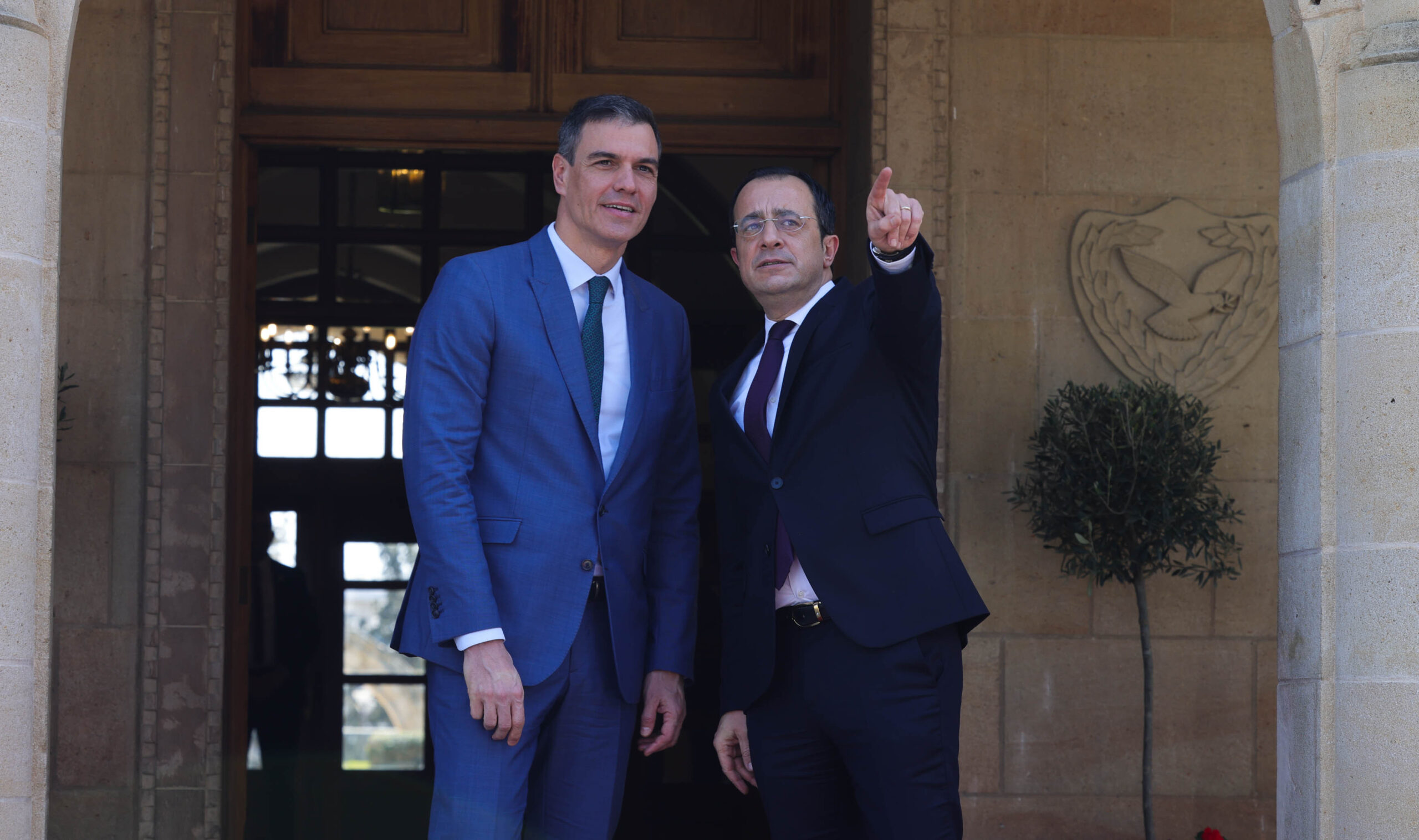Spain will spearhead a new European Union initiative to break the six-year deadlock in Cyprus peace talks, Spanish Prime Minister Pedro Sanchez said Tuesday.
Sanchez made the commitment after talks with Cypriot president Nikos Christodoulides during a visit to the fellow EU member state.
He said Madrid “strongly supports” Cyprus reunifications based on United Nations resolutions for a bizonal federation that ensures the security and peace for Greek and Turkish Cypriots.
“We will work in this direction during our presidency, with the help of Cyprus.
“And Cyprus can count on us.
“We will take an initiative to restart the dialogue between the parties,” Sanchez told reporters.
He was paying a working visit – the first Spanish PM to do so since 2009 — to Cyprus, given Spain taking over the EU Council presidency on July 1.
“We wanted to know what the opinion of Cyprus on issues on the EU agenda is that will concern us,” said Sanchez.
Recently elected Christodoulides has advocated greater involvement from Brussels in trying to defrost the impasse to restart UN-sponsored Cyprus talks from where they failed in July 2017.
“The role of the Presidency of the EU Council is important in this kind of initiative and the fact Spain maintains very good relations with Turkey,” said Christodoulides.
“We believe that it can also help our effort for more active, more effective EU involvement in efforts to end the impasse,” he added.
He said the two leaders agreed to be in close coordination and consultation to “achieve this goal”.
“Spain has particular sensitivities on matters of sovereignty, territorial integrity and independence,” said Christodoulides.
There have been no formal UN-sponsored peace talks since the last round collapsed at Crans-Montana, Switzerland, in 2017.
Turkish Cypriot leader Ersin Tatar, a protege of Turkish President Recep Tayyip Erdogan, has urged the international community to “acknowledge the existence” of two states in Cyprus.
In stark contrast to the position of Christodoulides, who supports a bi-zonal, bi-communal federation in line with the UN framework, but with more EU input.










